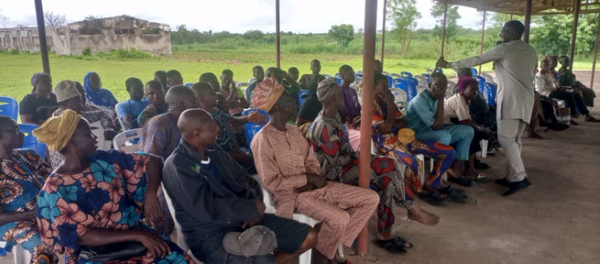The African Agricultural Technology Foundation (AATF) has launched a comprehensive Good Agronomic Practices (GAP) training program to enhance the skills of cassava farmers and processors in southwest Nigeria. Targeting over 6,000 beneficiaries, the initiative places particular emphasis on empowering women and youth.
The weeklong training, facilitated by the National Root Crops Research Institute (NRCRI) in Umudike, began with the first group of 1,000 participants, comprising farmers and processors. This represents the initial phase of a three-year program, with AATF planning to train 1,000 participants in 2024, 2,000 in 2025, and 3,000 in 2026. This is in line with AATF’s earlier commitment during the inauguration of the Cassava Mechanization and Agro-Processing Facility in April 2024 to improve cassava farming practices and processing.
In addition to farmers, 1,000 processors, primarily women from Oyo and Ogun states, will receive training focused on cassava value addition. This initiative aims to provide them with skills to enhance their production methods and create additional income streams through value-added cassava products.
During the launch, Mr. Kehinde Jimoh, AATF’s Programme Officer for Agribusiness, underscored the importance of the initiative in enhancing cassava productivity and improving the livelihoods of farmers and processors. He remarked, “This training is focused on empowering farmers and processors with best agronomic practices and value-addition strategies, which will lead to significant improvements in their livelihoods and cassava productivity.”
Dr. Adeyemi Olojede, Director of Tuber Crops Research at NRCRI, expressed his enthusiasm for the institute’s involvement in the program. He highlighted that the training would not only boost cassava production but also foster value addition, providing farmers with alternative income opportunities. “Given the significant impact this training will have on cassava farmers in southwest Nigeria, NRCRI has deployed a team of experts to ensure that the objectives are met and that the facility contributes to the nation’s food security efforts,” Dr. Olojede noted.
The program, hosted by AATF and facilitated by NRCRI experts, is supported by the German Federal Ministry for Economic Cooperation and Development (BMZ) and implemented by Deutsche Gesellschaft für Internationale Zusammenarbeit (GIZ) GmbH in collaboration with AATF, Agridrive Ltd., and Clayuca Corporation.
The training covers critical areas such as best agronomic practices, cassava value addition, and prudent financial management, all within the framework of the “Mechanization of Cassava Production and Processing Project” under the Fund for the Promotion of Innovation in Agriculture (i4Ag).
This initiative is expected to significantly improve cassava farming and processing in Nigeria, ensuring that farmers are equipped with the necessary knowledge and tools to boost productivity and sustain their livelihoods.


